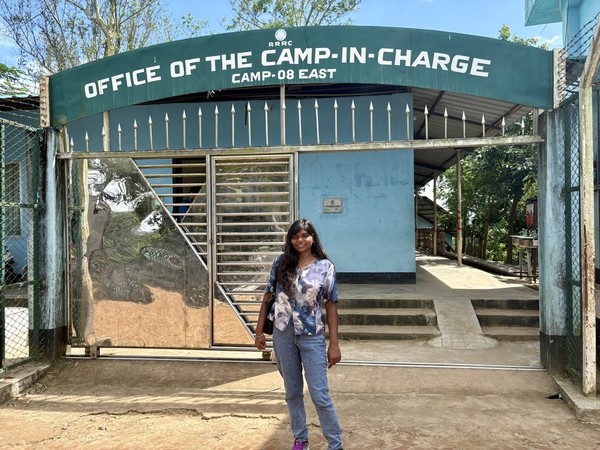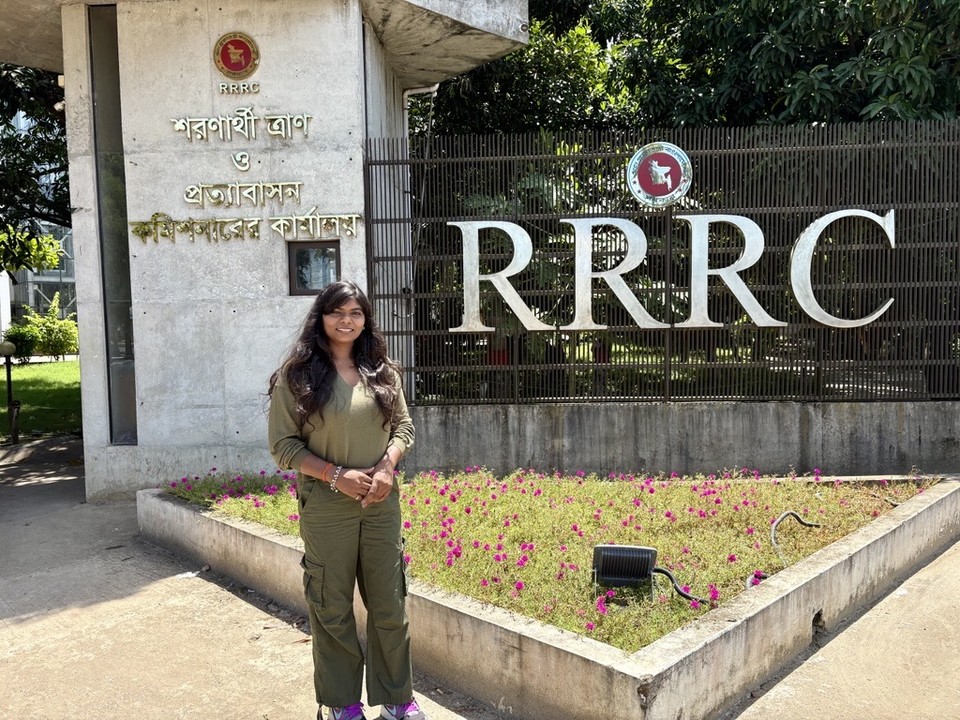When I decided to spend a month researching the Rohingya refugees in Bangladesh, I thought the hardest part would be conducting interviews in one of the world's largest refugee settlements. I was wrong. The real challenge began months before I even boarded my flight—with a visa application that would test my patience and determination. As a postdoc researcher working on "Securitization of Migration in South Asia: Implications for Rohingyas," I was studying how securitization policies in India and Bangladesh affect Rohingya refugees. For the Bangladesh part of my research, I needed to see firsthand how these policies impact the lives of over a million Rohingya refugees living in camps around Cox's Bazar. What followed was a month-long journey from August to September 2025 that taught me as much about bureaucratic navigation as it did about refugee experiences.
The Visa Maze
Getting a tourist visa to Bangladesh is straightforward. Getting a research visa? That's an entirely different beast. The Bangladesh High Commission clearly states the requirements: an individual who is participating in research/training/internship program in any government-approved agency or organization in Bangladesh is eligible to apply for a research visa, and processing typically takes seven working days. But buried in that list of required documents was a single line that would consume weeks of my time: "Consent letter from the concerned Ministry in Bangladesh." Sounds simple enough, right? Except nowhere could I find instructions on how to actually obtain this ministerial consent letter. No government website explained the process. No academic forums had clear answers. I spent countless hours scouring official websites, reaching out to contacts, and sending emails that disappeared into bureaucratic black holes.
My breakthrough came through pure luck and good networking. I connected with the Refugee Migration Lab based in the University of Chittagong, Bangladesh, whose team, especially Prof. Nasir Uddin, had navigated these waters before. They didn't just help me understand the ministerial consent process—they became my lifeline throughout the entire journey, arranging logistics and ensuring everything would run smoothly once I arrived. Without their expertise, I'm not sure I would have made it past the visa stage. I would like to express my sincere gratitude to Prof. Nasir Uddin and Prof. Muhammad Faridul Alam for their unwavering support.
Bureaucracy Doesn't End at the Border
Getting the visa and landing in Dhaka felt like a victory, but I quickly learned that getting into Bangladesh was just the first step. Before setting foot in any Rohingya camp, one needs additional clearance from local authorities. Understandably, the refugee camps aren't tourist destinations you can simply visit—they're highly regulated spaces requiring multiple layers of permission. The process starts at the Refugee Relief and Repatriation Commissioner's (RRRC) office in Cox's Bazar, the administrative heart of refugee operations in the region. This isn't a quick rubber-stamp visit. Officials need to understand your research purpose, verify your credentials, and ensure you're working with legitimate institutions. Once you receive this primary clearance, you can begin planning actual camp visits. But even with RRRC approval, each individual camp requires separate coordination. Every camp has a Camp-in-Charge (CiC) office where you must register before entering, explain your activities, and receive a final permission. These officials became some of my most valuable contacts—they understood camp dynamics and provided insights that proved crucial to my research. The CiC officers were consistently helpful throughout my stay, offering practical advice about everything from interview locations to cultural sensitivities.
The Daily Reality of Fieldwork
Security considerations shaped every aspect of my daily routine in ways I hadn't anticipated. The golden rule for international researchers or any individual who is coming from outside like NGO workers is simple: be out of all camps by 3 PM. This wasn't a suggestion—it was a firm requirement based on security assessments and safety protocols. Planning interviews and observations around this deadline became a daily challenge that required early starts and efficient scheduling. I quickly learned that renting a car with a driver wasn't just convenient—it was essential. Public transportation in the Cox's Bazar region is limited and unpredictable, and having reliable transportation became crucial for maximizing research time within the security constraints. My driver became an unexpected resource, helping navigate not just the physical roads but also local customs and protocols. Having someone familiar with the area made the difference between productive days and time wasted dealing with logistical problems.
What This Experience Taught Me
The bureaucratic obstacles I encountered weren't just administrative inconveniences—they reflected the enormous challenges of managing one of the world's largest refugee populations. The multiple layers of approval, while frustrating, serve important protective functions. Working in this environment reinforced how crucial local partnerships are for any researcher attempting fieldwork in challenging contexts. The Refugee Migration Lab didn't just help me navigate bureaucracy—they provided cultural context, introduced me to key contacts, and ensured my research met local ethical standards. Trying to work in isolation would have been both ineffective and potentially harmful.
Lessons for Future Researchers
Anyone planning similar research should start the visa process at least three months before intended travel. The ministerial consent requirement isn't clearly explained anywhere, making local institutional partnerships essential from the beginning. Don't book flights until you have your passport back with the visa—processing times are unpredictable, and delays are common. Budget for daily car rentals throughout your fieldwork period. The security requirement to leave camps by 3 PM means you need reliable transportation to maximize research time. Build buffer time into your schedule for administrative delays and multiple clearance visits.
Acknowledgement: This work was supported from OP JAC Project “MSCA Fellowships at Palacký University III.” CZ.02.01.01/00/22_010/0008685, run at Palacký University in Olomouc, Czech Republic.

